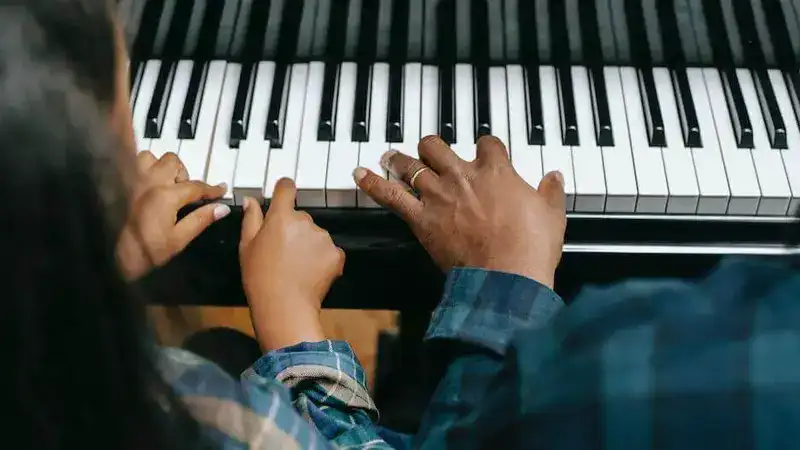Learning an instrument is a journey that evolves with age, ability, and curiosity. For families seeking a long-term path in music education, piano lessons can offer a flexible and enriching experience that matures alongside the student. Playtime Music Academy presents an opportunity for young learners—from toddlers to teenagers—to engage with the piano in ways that feel personal, developmental, and adaptable. We will explore how a thoughtful and age-appropriate structure for music instruction can turn piano lessons into a lifelong journey of discovery, creativity, and joy. The transformation from early childhood exposure to disciplined teen practice reflects not only a growth in skill but also an evolution in self-expression.
A Nurturing Start: Piano for Toddlers and Preschoolers
Introducing toddlers and preschoolers to the piano isn’t about memorizing notes or mastering scales. It’s about creating an environment where sound becomes play, and curiosity is encouraged. In these early years, children respond best to repetition, rhythm, and fun—three key elements that form the foundation of successful early music education. Rather than sitting at a piano bench with rigid expectations, these young learners thrive with activities that blend movement, storytelling, and sound exploration. Online piano lessons in Baltimore County offer a unique opportunity for parents to introduce music in a way that suits their child’s pace and personality. Simple finger exercises, sing-along songs, and games that introduce high and low notes help children make meaningful connections with the instrument without pressure.
Playtime Music Academy understands that young minds engage with music differently. Their approach for early learners often integrates visual aids, color-coded keys, and movement-based interaction to keep attention focused and motivation high. The key is not pushing progress but nurturing it. When music is introduced as a joyful part of daily life, toddlers build positive associations that last well into their school years. Parents also play a key role during this stage, often participating in sessions and reinforcing what’s learned between lessons. These shared experiences not only strengthen the bond between parent and child but also create a musical language that becomes second nature over time.
Building Structure in the Elementary Years
As children grow into the elementary years, their cognitive abilities, attention spans, and motor skills improve, making it the perfect time to introduce more structure to piano lessons. While the emphasis on fun remains, this is when students begin learning note reading, hand positioning, and basic rhythm patterns. The shift from playful exploration to foundational skill-building doesn’t have to feel abrupt. Instead, the transition can be gradual, with teaching methods that build on what was previously introduced. Lessons often start incorporating more recognizable songs and techniques that allow students to feel a sense of progress and accomplishment.
At this stage, lessons become a balancing act between discipline and enjoyment. Motivation can be sustained by allowing students to choose songs they like, engage in short performance activities, and receive positive reinforcement through praise or virtual stickers and achievements. Online programs offer structured learning paths that are also customizable to individual learning speeds. Children develop the ability to follow directions, track musical symbols, and play with both hands, often within the first year or two. These foundational skills are essential, but what makes them truly effective is how they are introduced—always with a sense of curiosity rather than pressure. Progress charts and goal-setting help children stay engaged, while regular feedback encourages reflection and boosts confidence.
The Preteen Transition: Deepening Musical Understanding
The transition from elementary to preteen years often brings a shift in how students relate to their music lessons. By this stage, many have developed solid foundational skills and are ready to dive deeper into technique, interpretation, and music theory. They start noticing how dynamics, tempo, and articulation bring pieces to life. Their understanding of musical structure begins to mirror their growing cognitive and emotional complexity. For many students, this is when piano transforms from an activity to a form of expression.
Rather than focusing solely on classical pieces or predetermined curricula, it becomes essential to let preteens explore a broader range of genres. Jazz, pop, movie soundtracks, and cultural pieces can keep their interest alive. Online programs that allow flexibility in lesson content empower students to follow their curiosity while still mastering essential techniques. Teachers can introduce chord progressions, improvisation, and basic composition to students who are curious about creating their own music. These experiences enhance not only their piano abilities but also their problem-solving skills and creative thinking.
Teen Musicians: Piano as a Personal Language
Teenagers bring a unique level of depth and introspection to their piano studies. As they navigate more complex emotional and intellectual experiences, the piano can become a refuge, a challenge, and a means of self-expression. For teens, music is often no longer about impressing adults or reaching milestones—it becomes something more internal. They may gravitate toward particular composers, styles, or even begin composing their own music. At this level, lessons must reflect their growing need for autonomy and self-direction.
Piano lessons that adapt to a student’s age, interests, and learning style create more than musical skill—they build confidence, discipline, and joy. From the earliest taps on the keys by curious toddlers to the expressive compositions of thoughtful teens, each stage of development is met with a teaching style that supports and challenges in just the right measure. Playtime Music Academy exemplifies this evolution by offering flexible, engaging instruction that grows alongside each student. With the right guidance and structure, piano becomes more than a weekly activity—it becomes a lifelong source of creativity, reflection, and connection. By meeting children where they are and nurturing where they’re going, piano lessons become a trusted companion through the many phases of childhood and adolescence. Visit this site.
